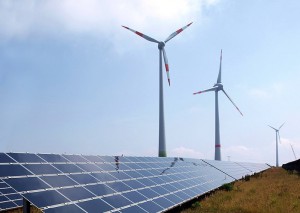Business Sweden has announced an energy delegation to Malaysia and Singapore on 8 – 10 September 2015, which will take place in conjunction with the International Greentech & Eco Products Exhibition & Conference Malaysia.
The export and investment potential lies in that Singapore and Malaysia are investing in renewable energy. One identified business opportunity is the fast-growing demand for equipment to generate, and to feed in new sources of energy, to the grid.

Malaysia is determined to move toward greener energy generation as prices on conventional energy are on the rise and reserves of fossil fuels are soon depleted. By 2020, 11 per cent of the total energy mix will be generated from renewable energy, which also will contribute to the national commitment to reduce CO2 intensity with 40 per cent.
Supported by a ‘Feed in Tariff’ scheme offering favourable rates for energy generated by solar PV, small hydro, biomass and biogas, renewable energy is becoming more and more popular. In turn this scheme has created a growing demand for solutions for renewable energy generation.
Singapore, with energy stability and security in mind, is also aiming to reduce CO2 intensity with and 35 per cent by 2030 and is diversifying their energy mix to lessen their dependency on import of fossil fuel from its neighbours, reports Business Sweden.
Lacking natural resources Singapore is focusing on improving energy efficacy in buildings with a target of 80 per cent of all building to comply with the national green building standard by 2030, creating a strong demand for solutions to enhance energy efficiency. However, solar energy is the exception as the only renewable energy source available. Pushed by soaring energy prices demand for Solar PV is growing fast.
To accommodate for the expansion of renewable energy and allow for more producers to feed into the grid Singapore and Malaysia are investing in smart solutions to upgrade transmission and distribution capabilities. At the same time, the ASEAN community has started building a smart grid to ensure energy supply in the region where Malaysia is the key transition hub and the main destination of mayor investments in transmission capacity.
David Lantz as Business Sweden can be contacted for further information about the delegation.

